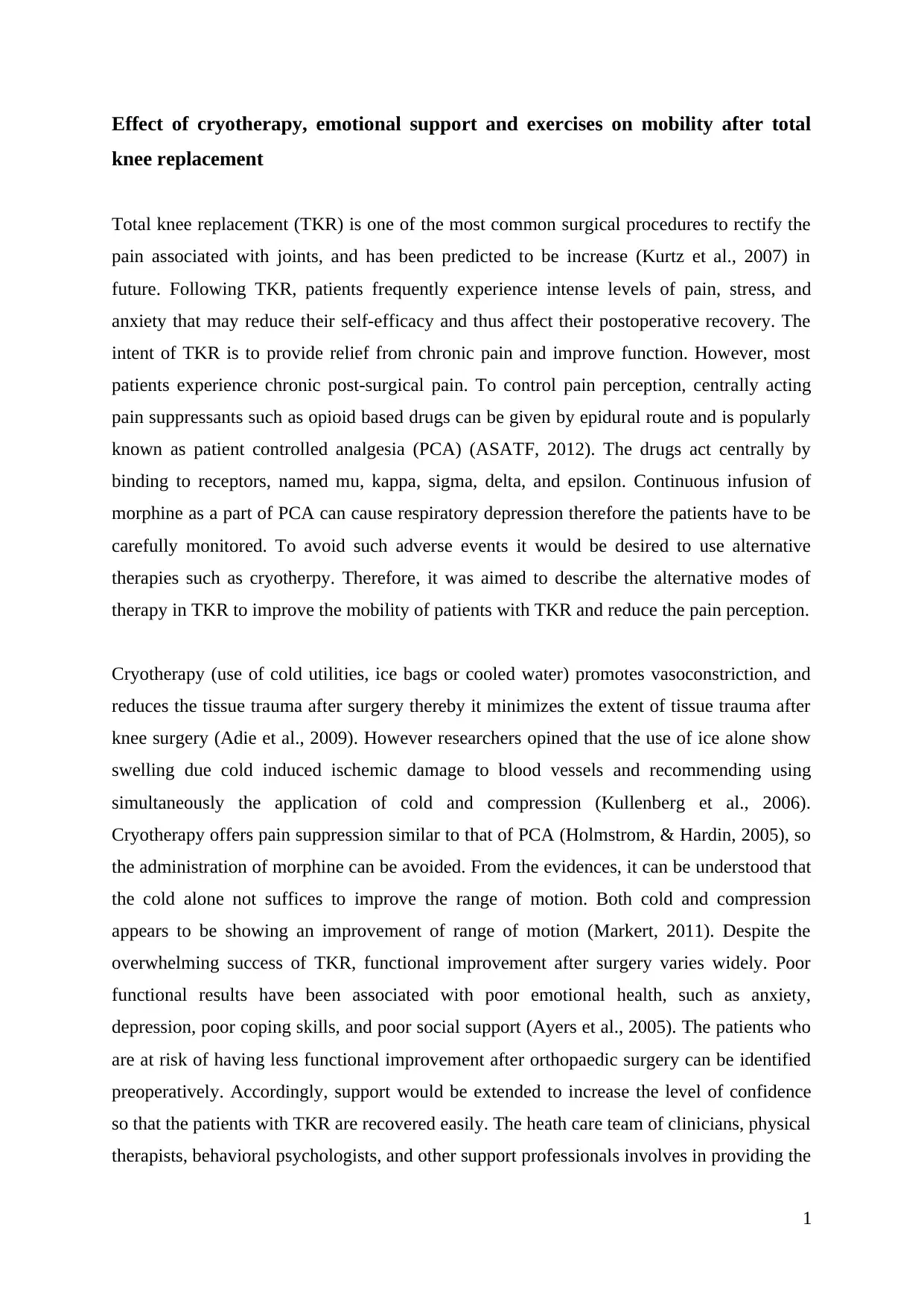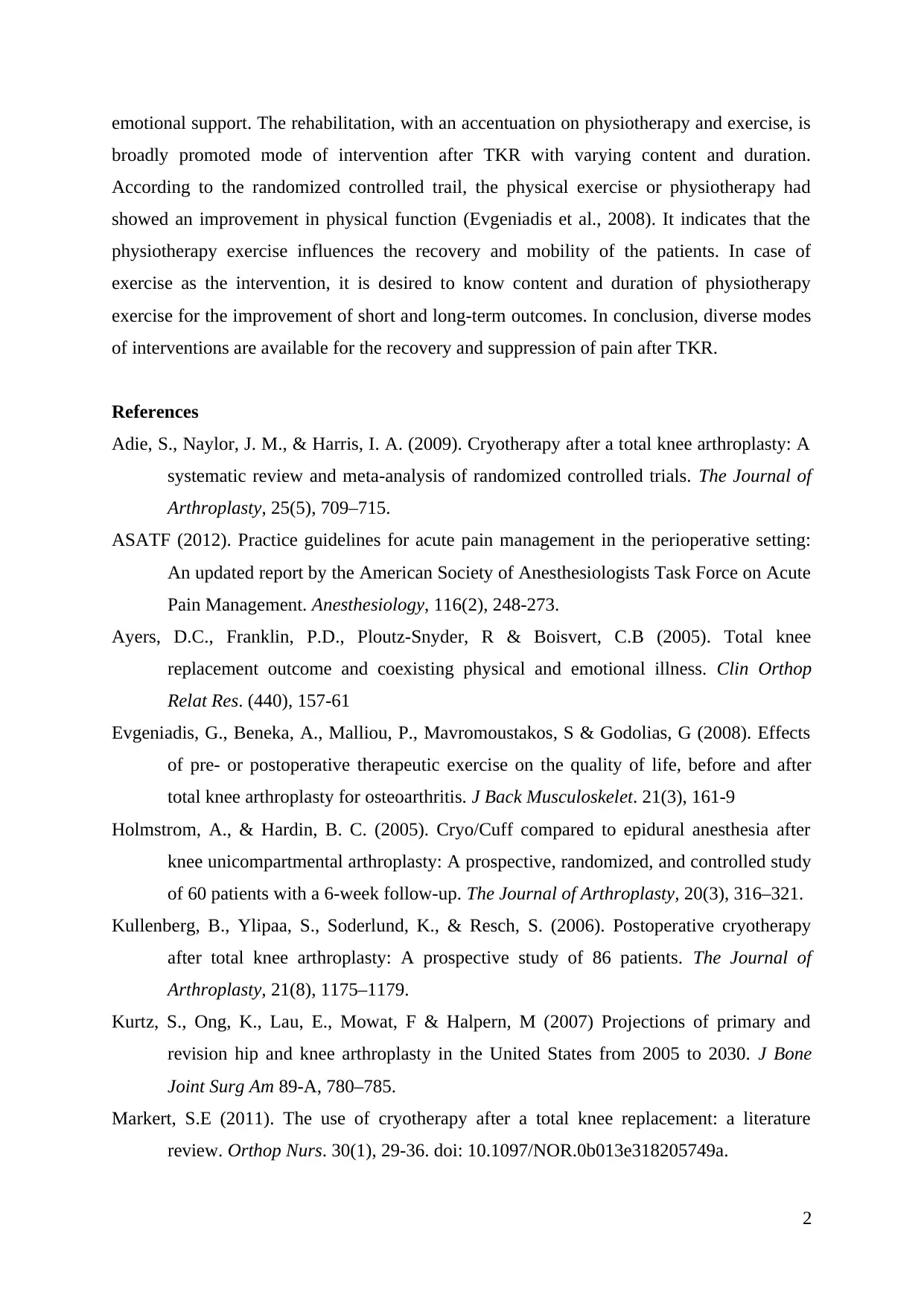Cryotherapy, Emotional Support, Exercise for TKR Recovery: A Report
VerifiedAdded on 2019/09/13
|2
|969
|422
Report
AI Summary
This report investigates the impact of various interventions on mobility and pain management following total knee replacement (TKR). The study explores the use of cryotherapy, emotional support, and exercise as alternative therapies to improve patient outcomes. Cryotherapy, including the application of cold and compression, is examined for its pain-suppressing effects and its potential to reduce tissue trauma. The role of emotional support, provided by a healthcare team, is highlighted to address the psychological factors influencing recovery. Additionally, the importance of physiotherapy and exercise in enhancing physical function and mobility is discussed. The report synthesizes existing research to provide insights into effective strategies for optimizing post-TKR recovery and improving patients' quality of life. It emphasizes the need for a comprehensive approach that combines physical and emotional support to achieve the best possible outcomes for individuals undergoing TKR.
1 out of 2








![[object Object]](/_next/static/media/star-bottom.7253800d.svg)